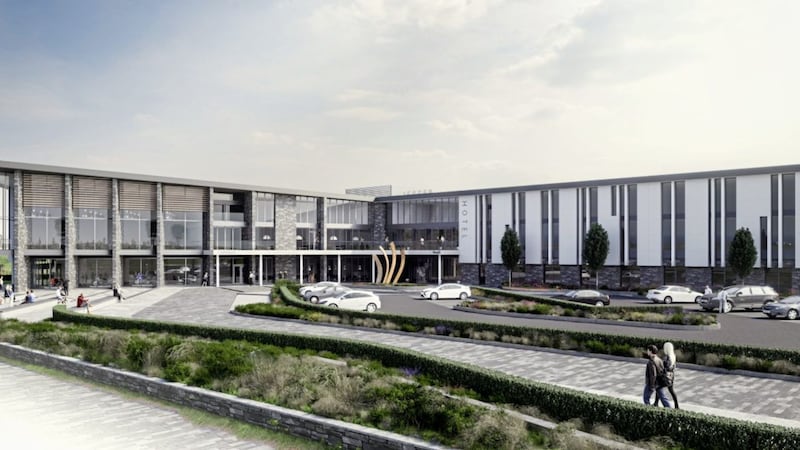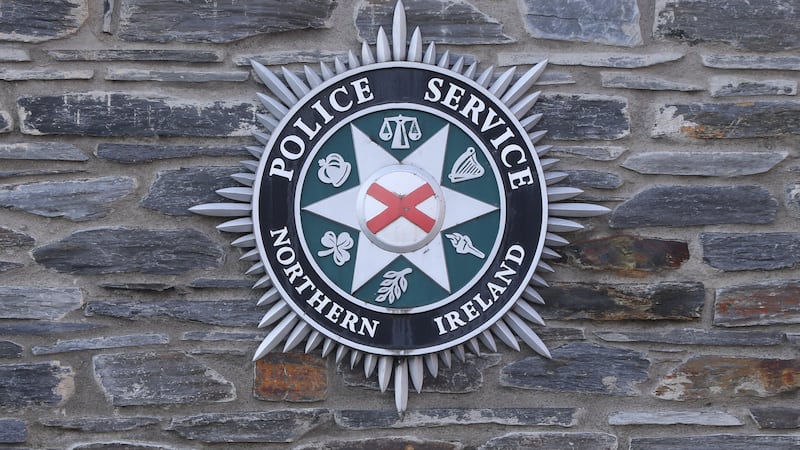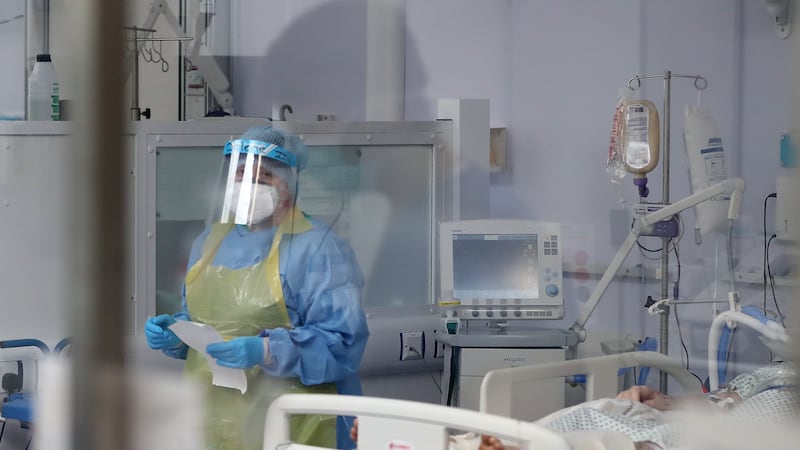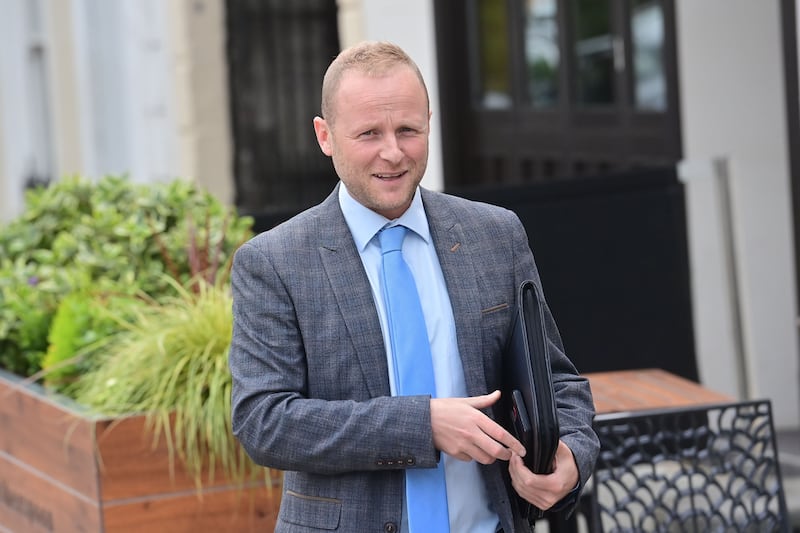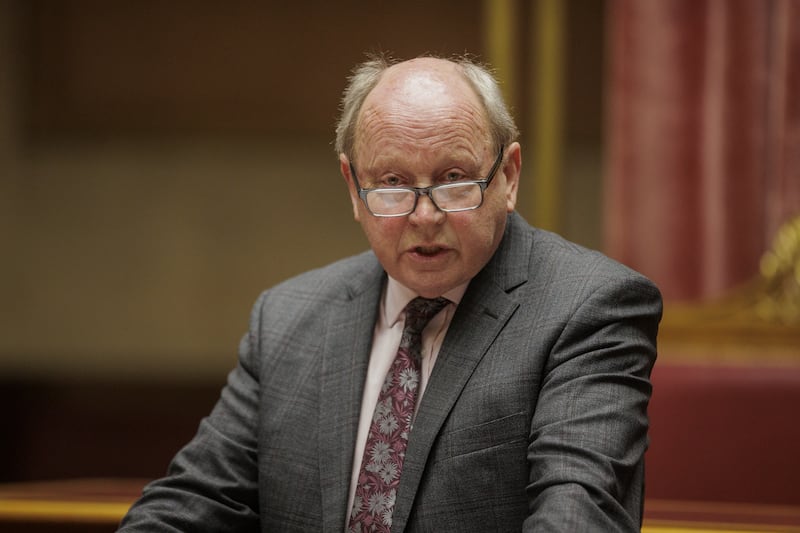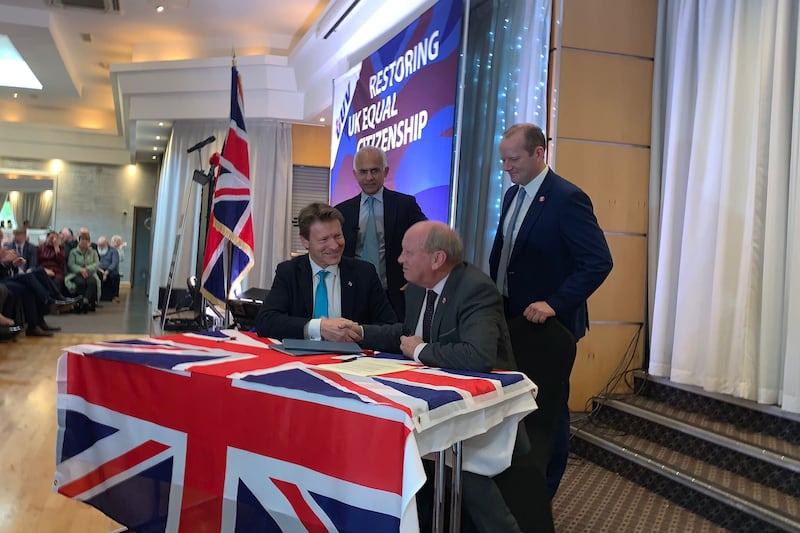A planned new £20m hotel and leisure complex on the north coast depended on a "critical" right of way being sold for £1, the High Court has heard.
Lawyers for North Antrim MLA Jim Allister also claimed pressure was applied at a high level within Causeway Coast and Glens Borough Council to ensure approval for a construction project regarded as a strategic priority.
Alan Kane QC argued: "Without that easement in essence this hotel development as it stood would never have got off the ground."
Mr Allister is seeking to judicially review the council's decision to give the green light to developers behind the scheme.
Plans include a 120-bedroom hotel, spa, holiday cottages, conference facilities and restaurant being built on the Ballyreagh Road near Portstewart, beside the North West 200 paddock.
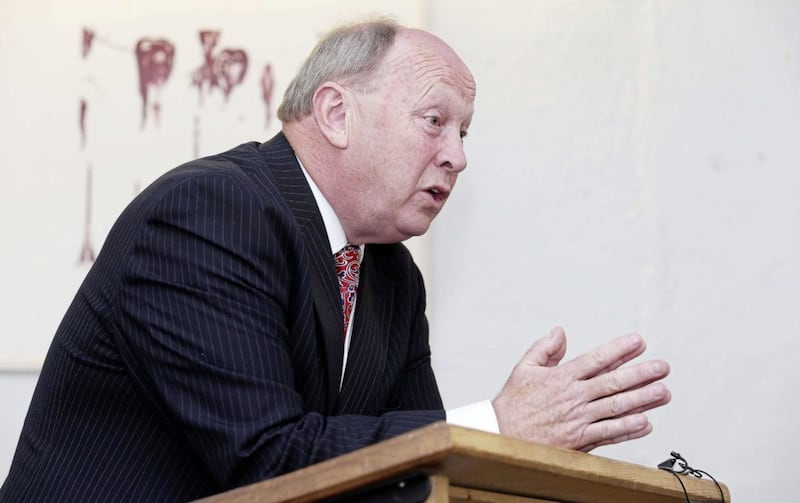
Permission was first given in June 2017, but withdrawn after Mr Allister initially threatened legal action.
The TUV leader, who has a home overlooking the development site, recommenced proceedings when council representatives passed the planning application for a second time last year.
Another local resident in the surrounding area has joined him in taking the case.
A number of grounds of challenge have been advanced, including claims that the environmental screening process for the proposed coastal location was flawed.
It is also contend that the council used the wrong criteria, and should have considered the application under a policy for a larger-scale tourism attraction.
During the case an independent councillor who sat on the planning committee which approved the resort intervened to claim he had covertly recorded relevant conversations with officials.
Padraig McShane said he had amassed hours of material.
Mr Kane contended that the intervention, and the content of the alleged conversations with a council legal representative, further strengthened his client's case.
At first a "charitable interpretation" had been taken of alleged failures to adhere to planning rules, the court heard.
But the barrister said that was no longer the view, based on the information uncovered through Mr McShane's tape recordings.
Referring to the alleged role of the council's chief executive, David Jackson, Mr Kane submitted that emails showed the hotel development was seen as key for the borough.
He claimed: "There was clearly pressure being applied through the council structures by the chief executive who had an inherent bias towards a compulsion to have this planning application approved at all costs, and regardless of the need to follow the proper process and have regard to the objectors who were affected by the planning application."
The court heard Mr Jackson has insisted that any reference to strategic development was about hotel development in general, rather than any specific project.
Mr Kane argued, however, that this "just does not stand any sort of proper scrutiny".
Citing the sale of a right-of-way to the developers for £1, he claimed it was central to ensuring planning permission was meaningful.
"The easement was critical to the success of the planning application."
A barrister representing the council told the court there was "absolutely nothing" to suggest any of its members were ever coerced in any way.
Stewart Beattie QC also stressed the presumption in favour of development unless demonstrable harm can be shown.
Turning to the planning policies under scrutiny in the case, he said Mr Allister had failed to identify any "smoking gun" which would establish a flawed process.
Mr Beattie rejected claims the proposals should have been assessed under TSM4 guidelines for major development in the countryside.
He contended that it instead fell within the remit for more mundane hotel construction.
"TS4 is an exceptional policy for an exceptional need," he added.
The case continues.
